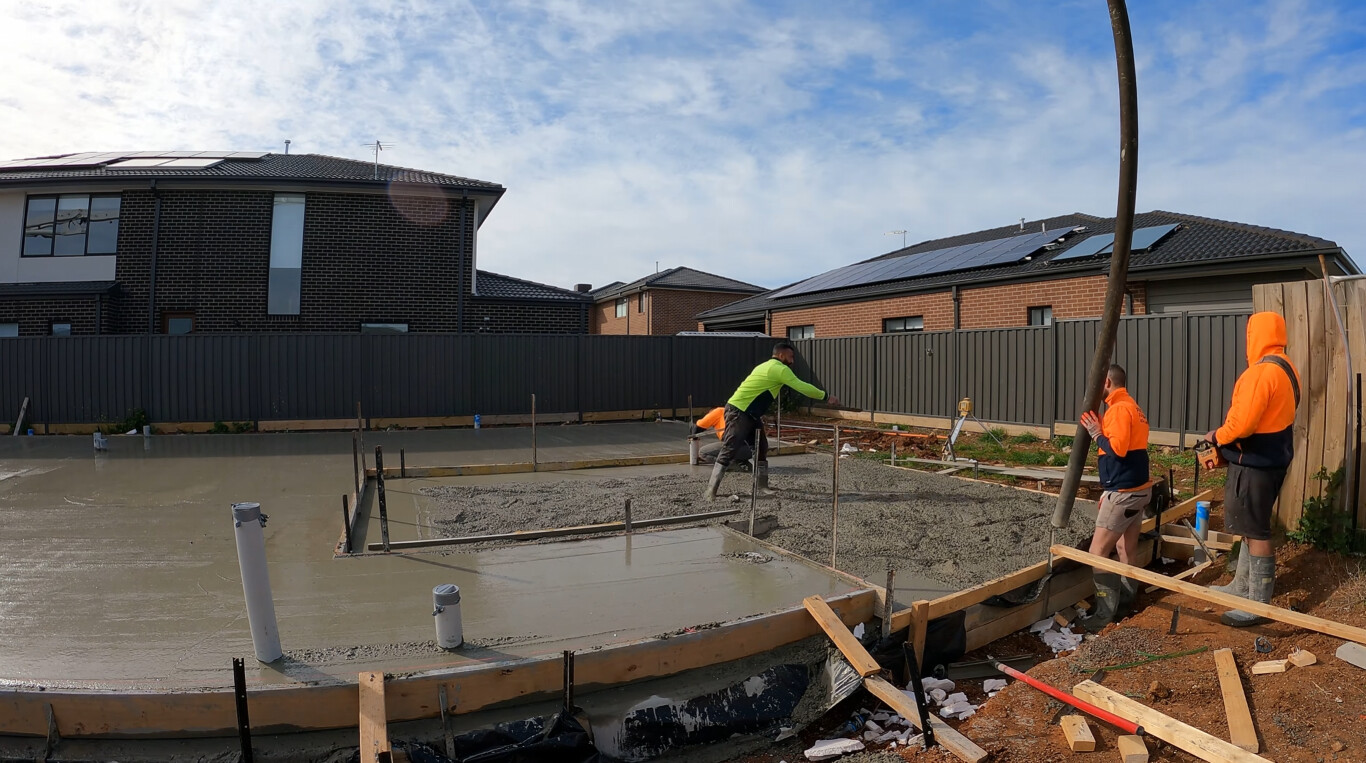Retaining Walls & Concrete Masonry
Control slopes, prevent erosion, and create usable space with engineered retaining walls and masonry structures.

Why Retaining Walls Matter
Retaining walls do more than just hold back dirt. They prevent erosion, control drainage, create level areas on sloped properties, and add functional outdoor space. In hilly areas or properties with grade changes, retaining walls make the difference between usable land and wasted slope.
Here in Bellflower and surrounding areas, we build retaining walls for yards with slope issues, properties that need terracing, and spaces where drainage control is critical. A well-designed retaining wall can last 50 years or more. A poorly built wall fails within a few years, dumping soil and creating expensive problems.
We design and install retaining walls and concrete masonry structures that handle the forces they face. We consider soil pressure, drainage, wall height, and building codes. The result is walls that work properly and look good for decades.
Types of Retaining Walls
Different situations call for different wall types. Here are the retaining wall systems we install most often for residential and commercial clients in Bellflower.
- •Concrete Block Retaining Walls: Interlocking concrete blocks that stack to create strong, attractive walls. These come in various sizes, colors, and textures. Block walls work well for heights up to 4 feet without engineering and can go taller with proper design.
- •Poured Concrete Walls: Custom formed and poured concrete walls reinforced with rebar. These handle any height and can incorporate curves, steps, and design elements. Poured walls offer maximum strength and design flexibility.
- •Concrete Masonry Unit (CMU) Walls: Traditional concrete block construction with vertical rebar and concrete-filled cells. These walls work for both retaining and freestanding applications. We can finish them with stucco, stone veneer, or leave exposed.
- •Tiered Wall Systems: Multiple shorter walls stepped back into slopes. This approach reduces pressure on individual walls and creates terraced planting areas. Tiered systems work well for steep slopes and large grade changes.
Engineering and Design Considerations
Retaining walls fight constant pressure from soil trying to move downhill. Water adds to this pressure. Poor soil conditions make everything worse. That is why retaining wall design requires careful planning and sometimes professional engineering.
When Engineering Is Required
Most building codes require engineered plans for retaining walls over 4 feet tall. Walls supporting buildings, driveways, or other structures need engineering regardless of height. Walls in poor soil or seismic zones may need engineering even if shorter. We coordinate with structural engineers to design walls that meet code requirements.
Drainage Behind Walls
Water trapped behind retaining walls creates enormous pressure that can push walls over. Every retaining wall needs drainage. We install gravel backfill, perforated drain pipes, and weep holes to direct water away safely. Proper drainage prevents most retaining wall failures.
Foundation Requirements
Retaining walls need solid foundations to prevent tipping or sliding. Foundation depth and width depend on wall height and soil conditions. Taller walls need wider, deeper foundations. We excavate to undisturbed soil and pour reinforced concrete footings sized for the wall they support.
Reinforcement
Concrete retaining walls need steel reinforcement to handle tension forces. Rebar patterns depend on wall design and loads. We follow engineering specifications exactly because proper reinforcement prevents cracking and structural failure. Block walls use vertical rebar through hollow cores. Poured walls use rebar grids.
Our Installation Process
Building retaining walls requires precision and attention to detail. Here is how we approach retaining wall projects from planning through completion.
- Assess site conditions including slope, soil type, and drainage patterns
- Design wall system appropriate for height and loads
- Obtain engineering and permits when required by code
- Excavate for foundation and grade work area
- Pour reinforced concrete footings to engineering specs
- Build wall using proper construction techniques for wall type
- Install drainage system behind wall including gravel and pipes
- Backfill carefully with proper materials and compaction
- Finish exposed surfaces and cap walls if applicable
- Grade surrounding areas for surface drainage
Concrete Masonry Beyond Retaining Walls
Our concrete masonry services include more than just retaining walls. We build various structures using concrete blocks and masonry techniques. Here are other projects we commonly complete.
Freestanding Walls
Privacy walls, property line walls, and decorative garden walls. These walls do not retain soil but still need proper foundations and construction. We build walls that meet fence height limits and property line setbacks.
Outdoor Kitchens and BBQ Islands
Concrete block provides the structure for outdoor cooking areas. We build bases for grills, countertops, and storage. These structures need to support heavy equipment and handle heat exposure. We can finish them with tile, stone, or stucco to match your design preferences.
Planters and Raised Beds
Built-in planters and raised garden beds using concrete masonry. These create defined planting areas and add dimension to landscapes. We integrate drainage so plants do not sit in water. Masonry planters last forever and can be built to any size or configuration.
Steps and Terraces
Concrete steps connecting different levels of your property. We coordinate steps with retaining walls and patios to create functional, attractive transitions between areas. Proper step dimensions matter for safety and comfortable use.
Maintenance and Longevity
Well-built retaining walls and masonry structures need minimal maintenance. However, some attention keeps them looking and performing their best for decades.
- Keep drainage systems clear of debris so water flows properly
- Address any cracks or movement immediately before problems worsen
- Clean efflorescence (white mineral deposits) with appropriate cleaners
- Seal concrete and masonry surfaces to prevent water absorption
- Monitor for signs of soil erosion around wall foundations
- Maintain proper grading so surface water drains away from walls
- Inspect walls annually for any changes or developing issues
Common Questions About Retaining Walls
Need a Retaining Wall?
Get a free consultation for your retaining wall or masonry project. We design and build durable structures throughout Bellflower and surrounding areas.
Call Now: (562) 353-1897